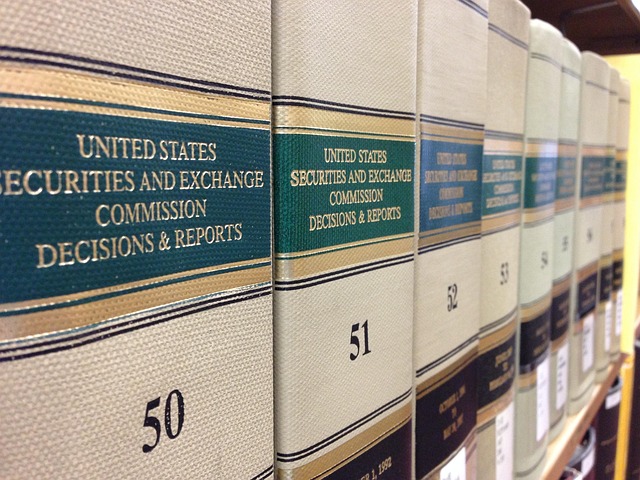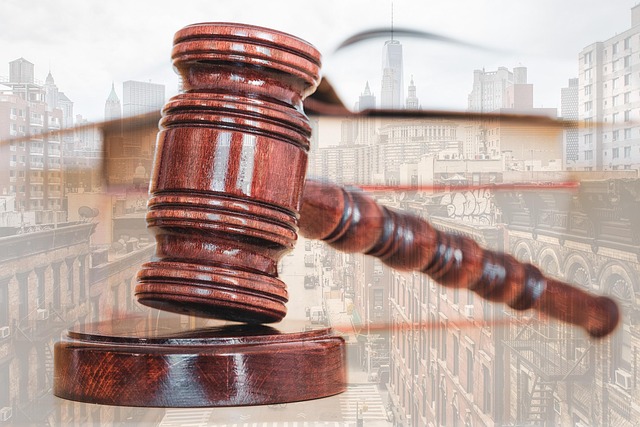Mastering criminal law and evidence rules is vital for RF Finance Law Firms to defend clients effectively. The Role of Evidence in Establishing Criminal Intent shapes case outcomes, with expertise in investigative processes crucial for navigating complex regulations. Advanced digital forensics revolutionize white-collar defense by meticulously analyzing digital data from various sources, uncovering hidden patterns and exposing fraudulent activities, ultimately strengthening arguments in court.
In the intricate landscape of financial crimes, RF Finance law firms play a pivotal role in navigating complex legal terrains. This article delves into crucial aspects of criminal law and evidence rules, highlighting their significance in securing justice. We explore how documentary proof and circumstantial evidence collaboratively uncover criminal intent, while witness testimonies fortify legal cases. Additionally, digital forensics emerge as modern tools, enhancing the establishment of guilt. Understanding these elements is key to understanding the strategic approach in serving clients across diverse financial crime scenarios.
- Understanding Criminal Law and Evidence Rules
- Role of Documentary Proof in Financial Crimes
- Circumstantial Evidence: Uncovering Criminal Intent
- Witness Testimonies: Strengthening Legal Cases
- Digital Forensics: Modern Tools for Establishing Guilt
Understanding Criminal Law and Evidence Rules

In the realm of RF Finance Law, navigating criminal law and evidence rules is paramount. Understanding the intricate web of laws governing criminal proceedings ensures that clients receive the most robust defense possible. The role of evidence in establishing criminal intent is a cornerstone of this understanding; it dictates the outcome of high-stakes cases, where an unprecedented track record can be the difference between freedom and incarceration.
Law firms serving this niche must possess expertise in all stages of the investigative and enforcement process. This includes deciphering complex evidence rules, ensuring that every piece of evidence is properly obtained, assessed, and presented to maintain the integrity of the case. Proficiency in these areas allows for strategic decision-making, from pre-trial negotiations to final arguments, thereby enhancing the chances of favorable outcomes in even the most labyrinthine cases.
Role of Documentary Proof in Financial Crimes

In the realm of financial crimes, documentary proof serves as a cornerstone in navigating complex legal landscapes. The role of evidence in establishing criminal intent is paramount, especially in white-collar and economic crime cases. RF Finance Law Firms, adept at serving diverse legal needs, recognize the critical importance of meticulously documented records. These firms employ skilled professionals who scrutinize financial transactions, contracts, and other relevant documents to uncover potential discrepancies or fraudulent activities that might otherwise go unnoticed.
By leveraging comprehensive documentary proof, RF Finance Law Firms can achieve extraordinary results. Their strategic approach enables them to present compelling cases, ultimately leading to the complete dismissal of all charges in some instances. This not only safeguards the interests of their clients but also underscores the significance of robust documentation in navigating and resolving financial crime investigations.
Circumstantial Evidence: Uncovering Criminal Intent

In financial law cases, particularly those involving white collar and economic crimes, circumstantial evidence plays a pivotal role in uncovering and proving criminal intent. This type of evidence doesn’t directly demonstrate guilt but rather builds a compelling narrative by presenting facts and circumstances that logically lead to the conclusion of unlawful activity. It’s a intricate process where each piece of information contributes to the overall picture, helping judges and juries understand the defendant’s actions and motives.
By examining financial records, patterns of transactions, and other relevant data, legal professionals can construct a case that highlights suspicious behavior, concealment of assets, or the abuse of power within philanthropic and political communities. This strategic approach ensures a thorough investigation, enabling prosecutors to challenge the accused’s version of events. Ultimately, the goal is to secure a complete dismissal of all charges if the evidence fails to establish guilt beyond a reasonable doubt.
Witness Testimonies: Strengthening Legal Cases

In legal battles, especially in complex cases like white-collar defense, witnessing testimonies play a pivotal role in establishing criminal intent and shaping the outcome of jury trials. These firsthand accounts provide concrete evidence that can either exonerate or incriminate individuals involved in legal disputes. The credibility and relevance of witness testimonies are paramount, as they offer insights into the events, conversations, and actions that led to the alleged crimes.
At RF Finance Law Firms Serving, we understand the intricate dynamics of these cases. Our experienced attorneys meticulously prepare for trials by scrutinizing potential witnesses and gathering compelling evidence to bolster their testimonies. By presenting strong witness statements, we aim to avoid indictment or, at the very least, mitigate the consequences for our clients facing white-collar charges. This strategic approach ensures that every piece of evidence, including testimonies, is carefully considered in defense strategies tailored to navigate the complexities of these legal matters.
Digital Forensics: Modern Tools for Establishing Guilt

In the digital age, the role of evidence in establishing criminal intent has evolved significantly, with digital forensics becoming a cornerstone in white-collar defense strategies. As technology advances, so too do the methods used to uncover and analyze digital data, providing unprecedented track records in investigations. Modern tools allow legal professionals to navigate complex digital landscapes, ensuring that every byte of information is examined and interpreted accurately. This meticulous process involves the recovery and preservation of electronic evidence from various sources, including computers, mobile devices, and cloud storage, which can be pivotal in proving or disproving guilt throughout all stages of the investigative and enforcement process.
By employing cutting-edge digital forensics techniques, law firms specializing in RF finance cases can uncover hidden patterns and connections that might otherwise remain undetected. These advanced tools enable them to reconstruct events, track financial transactions, and expose fraudulent activities, thereby strengthening their arguments in court. This scientific approach to evidence collection ensures the integrity of the legal process and enhances the overall effectiveness of white-collar defense strategies.
In navigating complex financial crimes, RF Finance law firms emphasize the intricate dance between understanding criminal law and mastering evidence rules. The comprehensive examination of documentary proof, circumstantial evidence, witness testimonies, and digital forensics enables these firms to unravel even the most labyrinthine cases. By leveraging these powerful tools, they establish guilt with undeniable certainty, ensuring justice is served. When it comes to the role of evidence in establishing criminal intent, RF Finance law firms stand as true game changers.






